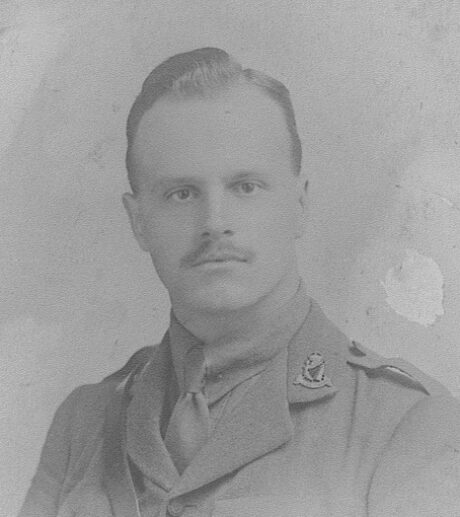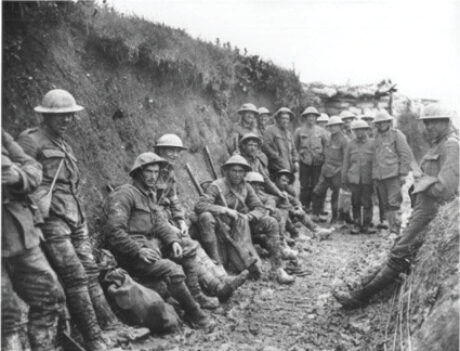As we celebrate 130 years of Mission Africa, it is sobering to consider the great suffering that Samuel and Gracie Bill endured – with great fortitude – throughout their ministry in Nigeria. Right from the outset of their lives together, they battled the harsh environment of Southern Nigeria, which played havoc with their health. This caused them to endure long periods of separation, as Gracie in particular had to return to Ireland for rest and recuperation. However, an almost forgotten aspect of the pain that they suffered was the loss of their son Jack, in August 1917.

John Alexander Patterson Bill was born in 1895, in Edinburgh. In 1907 he was admitted to the Royal Belfast Academical Institution (RBAI or Inst), where he proved himself to be something of an all-rounder, playing for the school rugby 1st XV and the cricket 1st XI. He also excelled academically, and won the prestigious Drennan scholarship, which allowed him to enrol at Queen’s University Belfast (QUB) to study medicine in 1912. His stated goal was to follow his parents into the Qua Iboe Mission, as a medical missionary. However, the First World War intervened and he felt compelled to enrol in HM Armed Forces, initially as a private in the Royal Army Medical Corps.
By April 1917 he was commissioned as a Second Lieutenant in the Royal Irish Rifles, training initially with the 18th Battalion in Bangor, before joining the front line 12th (Central Antrim) Bn. He arrived in France on 16th June 1917. His brother officers later testified to his true Christian character and described him as “…a good soldier, an efficient and trustworthy officer.”
Jack Bill went into action on the first day of the second phase of the Battle of Passchendaele. He went over the top on August 16th and was described by those who saw him as gallantly leading his troops from the front; he made his way far towards the German line before he was struck in the abdomen by a bullet and badly wounded. Rifleman Matthews attempted to rescue 2Lt Bill, but was killed in the attempt. The British attack faltered and the retreating troops were unable to recover Jack Bill; he was left badly wounded in no-mans land. His body was never recovered.
The news reached Nigeria that Jack was missing in action, believed killed. Gracie Bill was utterly inconsolable for days. Samuel Bill recorded in his diary: “The pride of our life has gone out and the hope of our life is laid low.”
Eventually, the fortitude and faith of Samuel and Gracie Bill reasserted itself, and Samuel was able to write to his dear friend R. L. McKeown: “The Lord Himself undertook for us in a wonderful way. He has taken all the sting away and given us the assurance, most real and deep, that he has done the very best…God’s Plan still stands”. Jack’s death was also the key factor in Emma Bill’s decision to join her parents in the Qua Iboe Mission, where she served faithfully.

Jack Bill’s name is inscribed on the Tyne Cot Memorial in Flanders and the war memorials of RBAI, QUB and Fitzroy Presbyterian Church (his home congregation).
As a strange side note, Second Lieutenant Archibald Bailie, son of Archie Bailie, Samuel Bill’s great friend and cofounder of the Qua Iboe Mission, was also severely wounded in the same engagement as Jack Bill but survived. Although the oft repeated claim that junior officers on the Western Front could only expect to survive 6 weeks is a demonstrable falsehood, being a junior officer was extraordinarily dangerous. As we approach Remembrance Sunday, we do well to give thanks to God for those – like Jack Bill – who gave their today for our tomorrows.